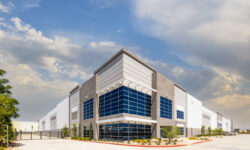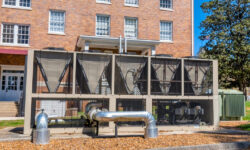Commercial HVAC systems are designed to operate in consistent, extended cycles for optimal efficiency. However, when systems start and stop repeatedly in short intervals, a problem known as HVAC short cycling, the consequences can significantly impact equipment performance and increase energy costs. This issue also compromises indoor comfort across commercial properties while substantially reducing system lifespan.
Read more →Businesses across the country are facing climate extremes. In response, business leaders are exploring ways to deliver reliable, efficient cooling while reducing electrical waste. Commercial buildings need to keep tenants and workers comfortable, protect equipment, and maintain indoor air quality. Two of the most common options for addressing these needs are chilled water systems and direct expansion (DX) systems. While both methods can deliver excellent cooling performance, they work in different ways. When deciding between chilled water vs. DX systems, you need to consider your building size, the climate, and your operational priorities. Read on to learn more about chilled water vs. DX systems so you can make an informed decision.
Read more →Maintaining a commercial HVAC system is critical to keeping tenants comfortable, protecting building assets, and preventing costly breakdowns. But when that maintenance has to happen in an occupied space, the challenge is making sure the work gets done without disrupting day-to-day operations. From scheduling preventive checks to managing noise and dust, the key is planning ahead and using best practices that respect the needs of occupants. You also need to consider how the work could impact employees. Here’s a look at how to approach HVAC maintenance in occupied spaces.
Read more →In large commercial buildings, plumbing systems must manage more than just water flow. Without proper ventilation, even the most well-designed plumbing infrastructure can experience pressure imbalances and foul odors. These isolated incidents can be manageable. However, your plumbing venting systems are interconnected, meaning the compounded effects can lead to widespread failures. Unfortunately, plumbing venting systems are often overlooked during design and maintenance. For property owners, facility managers, and contractors, understanding how venting works and what warning signs to look for can prevent costly repairs and serious code violations down the line.
Read more →In recent years, climate extremes have become a constant concern in building management. Record-breaking summer heatwaves and unpredictable winter fluctuations have placed a major burden on commercial HVAC systems. Traditional heating and cooling setups are struggling to keep pace. Here’s what facility managers and property owners need to know, including how to adapt effectively.
Read more →Mixed-use commercial properties are a growing trend in Maryland, DC, and Virginia. Each zone has unique heating, cooling, and ventilation needs, making HVAC management complex. Mixed-use spaces must adapt to the needs of each occupant. For instance, retail areas need steady airflow to keep shoppers cool and comfortable. Offices need quiet systems that promote focus and productivity. Apartments demand comfort and unit-level control. Addressing the heating and cooling requirements of each tenant can be incredibly difficult. Fortunately, you can overcome these challenges by adopting established HVAC best practices designed to address the unique needs of mixed-use commercial properties. Here’s what you need to know.
Read more →Government and municipal buildings in Maryland, Virginia, and DC face stringent HVAC requirements due to their public use and regulatory oversight. For instance, Virginia has detailed regulations regarding minimum temperature requirements in occupied workspaces. If you are responsible for maintaining government or municipal buildings, keeping the HVAC system in functional condition is essential. The Severn Group’s expertise in HVAC design, installation, maintenance, and repair makes us a trusted partner for municipal buildings and government facilities. Here’s what you need to know about heating and cooling system requirements in your space.
Read more →When you’re planning maintenance for your commercial space, don’t forget the unsung hero of your plumbing system: the drains. Poorly maintained or aging drainage systems can lead to plumbing failures, water damage, and costly repairs that disrupt your business. The Severn Group’s plumbing professionals deliver timely maintenance and repairs to keep your drainage systems functioning reliably all year long. We’ll go over the hidden impact of neglected drains and provide actionable tips for avoiding a catastrophic failure.
Read more →When preparing for commercial buildouts, HVAC planning sometimes takes a back seat until it becomes a problem. Whether you’re a contractor overseeing a retrofit or a building owner reconfiguring interior space, your success hinges on one critical factor — HVAC adaptability. Unlike new construction, commercial buildouts in existing structures demand custom HVAC strategies that work with (not against) what’s already in place. The right approach can help your team get more work done and ensure everyone is comfortable all year long. At The Severn Group, we’ve seen what happens when HVAC is an afterthought. This guide can make sure it doesn’t happen to you.
Read more →Large commercial buildings often experience hot and cold spots, negative pressure areas, and other abnormalities that make certain areas uncomfortable. Installing a high-quality HVAC system and scheduling regular maintenance services can help mitigate these issues. However, commercial systems also require load balancing. Load balancing is a crucial but often overlooked factor in maintaining indoor comfort. It can address temperature inconsistencies in your commercial building and reduce energy consumption. Ensuring balanced airflow and pressure will also extend the life of your HVAC system. Here’s everything you need to know.
Read more →









